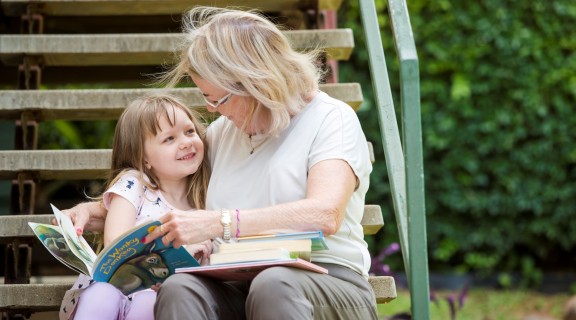
The Power of Storytelling: Connecting families through generations
2 October 2024 | State Library of Queensland
Every year, Grandparents Day is celebrated in Queensland on the last Sunday in October. On this day you can celebrate and thank the grandparents in your life in different ways – cooking and sharing a favourite meal, listening to songs and if you can’t be together in person, connect through a video call.
In today’s busy world, some parents might find that their children’s grandparents feel a bit out of touch with the younger generations.
One important activity can bridge this gap: storytelling.
Sharing stories with all children is just as essential now as it ever was, offering numerous benefits for both young children and their older relatives.
From an early age, engaging children with stories encourages their language development, social skills and overall wellbeing. Personal stories and family histories allow children to learn about relatives and their culture, and even discover what their parents or siblings were like when they were little. These storytelling experiences will capture little imaginations and conversations, maybe even sparking some fun questions about “the olden days”.
Storytelling also cultivates a powerful sense of identity and belonging. When children hear stories about their ancestors they learn about their family’s legacy, fostering stronger bonds and connections. These experiences also give grandparents the opportunity to talk to little ones about their cultural heritage.
If your child’s grandparents find it challenging to recall a story, encourage them to look through family photo albums with little ones. A simple story about a photograph can open a treasure trove of memories and spark meaningful conversations.
Reading together is another wonderful way to create connections. Whether it’s a book from your own childhood or a new one from your local library, sharing books fosters closeness and encourages discussions that can lead to a deeper understanding of one another.
Comments
Your email address will not be published.
We welcome relevant, respectful comments.